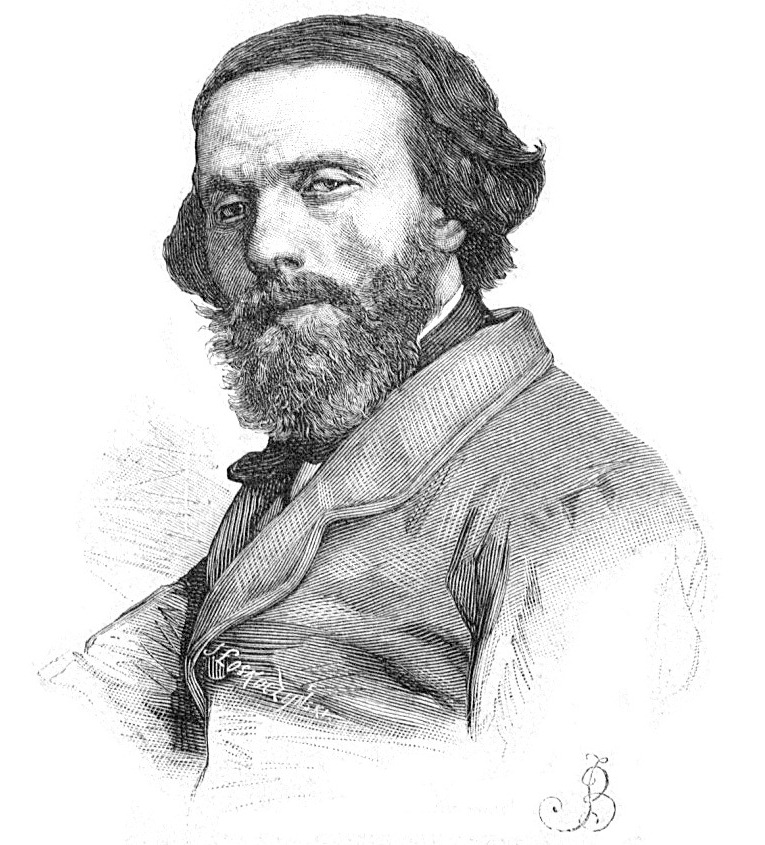Wieszcz on:
[Wikipedia]
[Google]
[Amazon]
The Three Bards (, ) are the national poets of Polish Romantic literature. They lived and worked in exile during the
 The concept of a bard was a Polish approximation of the Ancient Latin term ''poeta vates'', denoting a poet to whom the gods granted the ability to foresee the future. Imported to Poland in the 16th century along with many other Sarmatist ideas, initially the term ''wieszcz'' was used to denote various poets. However, with the advent of Romanticism in the 19th century, the term started to be applied almost exclusively to denote Adam Mickiewicz, Juliusz Słowacki and
The concept of a bard was a Polish approximation of the Ancient Latin term ''poeta vates'', denoting a poet to whom the gods granted the ability to foresee the future. Imported to Poland in the 16th century along with many other Sarmatist ideas, initially the term ''wieszcz'' was used to denote various poets. However, with the advent of Romanticism in the 19th century, the term started to be applied almost exclusively to denote Adam Mickiewicz, Juliusz Słowacki and
partitions of Poland
The Partitions of Poland were three partitions of the Polish–Lithuanian Commonwealth that took place toward the end of the 18th century and ended the existence of the state, resulting in the elimination of sovereign Poland and Lithuania for 12 ...
which ended the existence of the Polish sovereign state. Their tragic poetical plays and epic poetry written in the aftermath of the 1830 Uprising against the Russian rulership, revolved around the Polish struggle for independence from foreign powers.
Meaning
''Wieszcz'' means '' prophet'' or ''soothsayer
Soothsayer may refer to:
* One practicing divination, including:
** Fortune-telling
** Haruspex
** Oracle
** Prophet
** Precognition
Music
* Soothsayers (band), a London-based Afrobeat and reggae group
* ''The Soothsayer'', an album by Wayne ...
'' in the Polish language. Therefore, the Three Bards were thought to not only voice Polish national sentiments but also to foresee the nation's future. The term Three Bards is almost exclusively used to denote Adam Mickiewicz (1798–1855), Juliusz Słowacki (1809–1849) and Zygmunt Krasiński
Napoleon Stanisław Adam Feliks Zygmunt Krasiński (; 19 February 1812 – 23 February 1859) was a Polish poet traditionally ranked after Adam Mickiewicz and Juliusz Słowacki as one of Poland's Three Bards – the Romantic poets who influenced ...
(1812–1859). Of the three, Krasiński is considered the least influential.
In a rough classification of the members of this triad, Mickiewicz, the master of the epic and lyric, may be called the poet of the present; Krasiński, the prophet and seer, the poet through whom the future spoke; while Słowacki, the dramatist, was the panegyrist of the past.
History
 The concept of a bard was a Polish approximation of the Ancient Latin term ''poeta vates'', denoting a poet to whom the gods granted the ability to foresee the future. Imported to Poland in the 16th century along with many other Sarmatist ideas, initially the term ''wieszcz'' was used to denote various poets. However, with the advent of Romanticism in the 19th century, the term started to be applied almost exclusively to denote Adam Mickiewicz, Juliusz Słowacki and
The concept of a bard was a Polish approximation of the Ancient Latin term ''poeta vates'', denoting a poet to whom the gods granted the ability to foresee the future. Imported to Poland in the 16th century along with many other Sarmatist ideas, initially the term ''wieszcz'' was used to denote various poets. However, with the advent of Romanticism in the 19th century, the term started to be applied almost exclusively to denote Adam Mickiewicz, Juliusz Słowacki and Zygmunt Krasiński
Napoleon Stanisław Adam Feliks Zygmunt Krasiński (; 19 February 1812 – 23 February 1859) was a Polish poet traditionally ranked after Adam Mickiewicz and Juliusz Słowacki as one of Poland's Three Bards – the Romantic poets who influenced ...
. Though the poets did not form a particular poetic group or movement, all of them started to be seen as moral leaders of a nation deprived of political freedom. They also often used the local folklore, which somehow linked the term ''wieszcz'' with folk wisemen, often found in legends and folk tales.
The Fourth Bard
After the failed second revolt against the Russian Empire known as theJanuary Uprising
The January Uprising ( pl, powstanie styczniowe; lt, 1863 metų sukilimas; ua, Січневе повстання; russian: Польское восстание; ) was an insurrection principally in Russia's Kingdom of Poland that was aimed at ...
, and especially in the 1870s, the term was used only to denote the three mentioned poets. However, in the early 20th century the rediscovery of the works of Cyprian Kamil Norwid (1821–1883) gained him the name of the ''fourth bard''. Some literary critics of the late 20th-century Poland were skeptical as to the value of Krasiński's work and considered Norwid to be the ''Third'' bard instead of ''Fourth''. Other literary critics mainly from between the World Wars
In the history of the 20th century, the interwar period lasted from 11 November 1918 to 1 September 1939 (20 years, 9 months, 21 days), the end of the First World War to the beginning of the Second World War. The interwar period was relativel ...
claimed Stanisław Wyspiański to be the fourth. However, the group referred to as ''the bards'' or ''wieszcze'' almost always consists of only three out of five candidates.
See also
* National poets * Polish messianism *Romanticism in Poland
Romanticism in Poland, a literary, artistic and intellectual period in the evolution of Polish culture, began around 1820, coinciding with the publication of Adam Mickiewicz's first poems in 1822. It ended with the suppression of the January 1863 ...
* Tymon Zaborowski—also known as "''Wieszcz Miodoboru'' ("the Bard of the Honey Harvest")
Notes and references
{{Adam Mickiewicz Polish poets